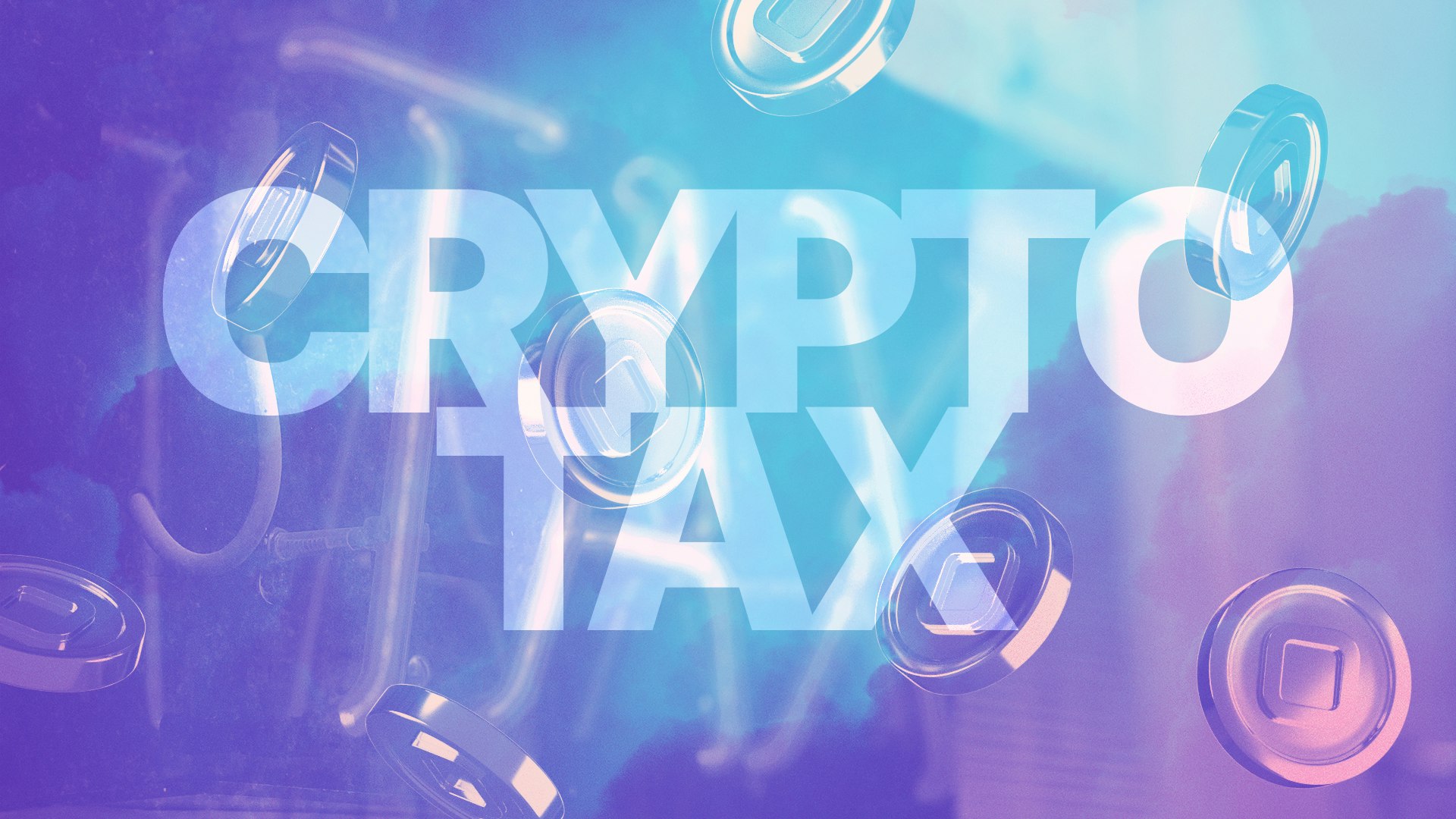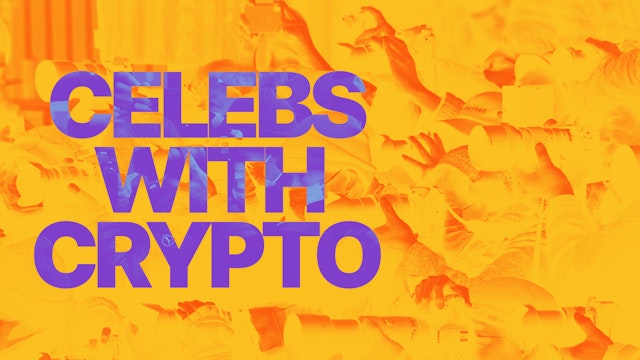Crypto and Tax in Ireland: Your Complete 2025 Guide
Got crypto? Here's everything you need to know about keeping the taxman happy in 2025.
In this article...
- Most of your crypto activities will typically fall under Capital Gains Tax (CGT)
- There are some things to think about when buying and selling crypto
- Here's what you need to know.

Crypto taxes in Ireland: So you've been riding the crypto wave – maybe you've made some gains, maybe you’ve lost everything and are sleeping on your gran’s couch. Perhaps you're mining Bitcoin in your garage, or your company is paying you in crypto. Whatever your situation, Revenue has some clear guidelines on how to handle your digital assets come tax time.
The basics: What Revenue thinks about your crypto
First things first – while we all call it cryptocurrency, Revenue views your digital coins more as assets than actual currency. Think of them more like stocks or property than euros in your bank account.
This means most of your crypto activities will typically fall under Capital Gains Tax (CGT), unless you're actively trading as a business.
When do you pay tax on crypto?
Every time you:
-Sell crypto for euro
-Exchange one crypto for another
-Use crypto to buy goods or services
-Gift crypto to someone…
You're creating what Revenue calls a "disposal," and you need to calculate if you've made a gain or loss.
You get a €1,270 tax-free allowance each year on your total capital gains.
Allowable costs
Not every euro you receive gets taxed. Revenue lets you deduct “allowable expenses” from your sale proceeds, like:
-What you paid for the crypto (including transaction fees)
-Costs of selling it (more fees, hooray!)
-Professional fees (e.g., accountants or tax advisors).
CoinJar’s transaction history export can help you track some of these costs – check it out here.
Capital losses
Had a rough year? If your crypto losses outweigh your gains, you can carry those losses forward to offset future gains. Just make sure you report them on your tax return – even a bad trade can save you tax later.
Negligible value claims, theft / fraud
Are you a CoinJar customer holding a coin that’s now worthless? If your crypto’s value drops to practically nothing, you can either dispose (sell / burn / give) your crypto or make a “negligible value claim” with Revenue. This lets you treat it as a disposal, claim a loss, and move on – no need to cling to that dead altcoin.
It may be more efficient to just sell or dispose of the asset and claim the actual loss. When making a negligible value claim, supporting documentation needs to be provided to Revenue.
-Hacked or scammed? Losses can offset gains, but you’ll need evidence.
-Lost keys: Lose access to your self-hosted wallet? It may be possible that losses can offset gains, but you’ll need evidence.
Calculating your capital gains
Here’s the simple version:
-Work out what you sold it for (in euros).
-Subtract what you paid (plus allowable costs).
-That’s your gain (or loss).
CoinJar users can lean on crypto tax software (with a CoinJar discount!) to crunch the numbers – details here. Please note CoinJar have no affiliation with these companies and are not accountable for their service offering.
What’s my capital gains tax rate?
For Irish residents:
-
2024: 33% on gains above €1,270.
-
2025: Also 33% on gains above €1,270 (no change there).
Big gains? You’re paying a third to Revenue – so plan ahead.
Capital gains exceptions: Donations
Want to give crypto to charity? In Ireland, you usually have to pay Capital Gains Tax (CGT) on donations. However, if you donate to certain approved charities, you can get a tax break that lowers the amount of income you pay tax on.
For this to work, the charity has to be officially recognised as an “eligible charity” by Revenue, and you need to donate at least €250 in a single tax year. When you claim this tax relief, you can subtract the donation amount from your total income, which means you’ll owe less tax overall.
Crypto card
Some exchanges offer a crypto debit card to use like a normal Mastercard or Visa card. Every swipe’s a disposal (a tax event) – calculate gains or losses based on the euro value at the time of spending.
Stablecoins
Swapping BTC for USDT on CoinJar? It’s a taxable transaction – stablecoins aren’t exempt. Gains or losses apply as with any crypto-to-crypto swap.
Derivatives trading
Gains here fall under CGT too – but the calculations can get wild. Track every move.
Gifts
Gifting crypto? Not only is this a taxable event for you, but gifting will also immediately trigger a capital acquisitions tax (CAT) event for the recipient.
The recipient may be exempt or below allowable thresholds, but it’s a CAT event nonetheless. The recipients' CGT tax also kicks in when they sell or dispose of the assets.
Hardforks and airdrops
Got free coins from a hardfork or airdrop? They’re usually income at the euro value when you get them. Sell them later? That’s a CGT event too.
Staking
Staking? Rewards are taxable – either as income (when received) or CGT (when sold). So document everything.
Loans, liquidity pools, and other DeFi income
Lending crypto or joining liquidity pools? Income from interest or rewards is taxed as miscellaneous income. Selling those assets later? CGT applies.
In Ireland, the tax treatment of lending cryptocurrency in Decentralised Finance (DeFi) scenarios, such as lending your crypto or participating in liquidity pools, can be complex and depends on how Revenue interprets these transactions. Based on general Irish tax principles (as there’s no specific DeFi guidance yet), here’s how it could play out.
Generally speaking (it is always a good idea to consult a tax professional) lending your crypto could result in a capital gain or loss at the point of lending.
There could be a second capital gain or loss when you eventually dispose of the crypto you get back.
Any interest or rewards you earn from lending your crypto (e.g., extra tokens paid as interest) would likely be treated as miscellaneous income under Irish tax law. This is because it’s income generated from an activity that doesn’t fall neatly into other categories like employment or trading.
Until specific DeFi rules are issued, this interpretation is not verified (as advice) and loosely based on how similar transactions are handled.
IDOs/ICOs/IEOs
Bought into a token sale? The gain from selling is CGT – track your cost basis from the start.
Moving crypto between wallets
Good news – shifting crypto between your own CoinJar wallets isn’t taxable. It’s only when you dispose of it that Revenue cares.
References
Revenue.ie – Crypto Tax Guidance
Citizens Information – Capital Gains Tax
CoinJar Support – Tax Tools
Your tax timeline
Mark these dates in your calendar:
-Made gains between January 1st and November 30th? Pay your tax by December 15th of the same year
-December gains? You've got until January 31st of the following year.
There is a requirement for two reports for the same tax year. You need a detailed report showing transactions from 1st Jan to 30th Nov, and another report from 1st Dec to 31st Dec. Click here to export your trading and transaction history on CoinJar for tax purposes.
-Your full tax return? Due October 31st of the following year.
The trading question
"But I'm a trader!" Hold up – Revenue has some thoughts about that. Just because you're buying and selling crypto doesn't automatically make you a trader in their eyes. If you're deemed to be trading as a business, you'll pay Income Tax instead of CGT. This is a complex area where professional advice might be worth its weight in Bitcoin.
Working for crypto?
If your employer is paying you in crypto, don't think you're flying under the radar. The value in euros at the time of payment is what counts for PAYE purposes. And yes, if you're getting crypto perks at work, the benefit-in-kind rules apply just like they would for a company car.
Record-keeping: Your new best friend
Keep those records! Revenue expects you to maintain six years of documentation about your crypto activities. This includes
-Purchase dates and prices
-Sale dates and values
-Transaction fees
-Wallet records.
The good news is that you can use crypto tax software to keep track of all your activity. There are more details here.
Automate your tax return with crypto accounting apps
Summ (formerly Crypto Tax Calculator) is the complete crypto tax solution. With support for over 3,500 exchanges, wallets and blockchains, Summ was built to handle everything from exchange trading to complex on-chain activity, including DeFi and NFTs. Get accurate, regulator-ready tax reports. Because close enough isn't good enough.
As a CoinJar user, you’ll get 30% off all Summ plans. Use the code COINJ30 at check out or sign up via this link, and your discount will be automatically applied.
Offer: 30% off
Eligibility: Discount on first year only. Only available to new customers.
International considerations
For our non-domiciled readers – if you're resident in Ireland but not domiciled here, things get interesting.
The traditional "remittance basis" of taxation might not apply to your crypto gains as you might expect. Why? Because crypto exists "on the cloud," making its location hard to pin down.
If you can't prove where your crypto is located, Revenue may tax your gains based on residency rules.
Pro tips for staying compliant
-Use a reliable crypto tracking app to monitor your transactions
-Keep euro values for all transactions at the time they occur
-Don't forget about crypto-to-crypto trades – these are taxable events too
-Consider setting aside a percentage of gains for tax time
-When in doubt, document everything.
The bottom line
The crypto tax landscape in Ireland is clearer than ever in 2024. While the rules might seem complex, they're actually pretty straightforward once you get your head around them. The key is staying organised and treating your crypto activities with the same seriousness as any other financial transaction.
Remember: This guide is just that – a guide. For complex situations or if you're dealing with significant sums, it's worth consulting with a tax professional who understands both traditional and crypto assets.

Suggested Articles

How AI Is Being Used in Cryptocurrency
AI is marching fast into every sphere on the planet, and crypto is no exception. Here are the latest developments in the merging of crypto and AI. Read more
The Psychology of Crypto Trading: Why We Make Irrational Decisions
The psychology of crypto trading: Here are some ideas on how to avoid mistakes.Read more
Does Your Fave Crypto Exchange Have a Celebrity Logging on as Well?
Many celebs have been connected with the blockchain. Has your fave celeb been indulging in crypto exchange life?Read moreBrowse by topic
The above information is not to be read as investment, legal or tax advice and takes no account of particular personal or market circumstances; all readers should seek independent investment, legal and tax advice before investing in cryptocurrencies. There are no government or central bank guarantees in the event something goes wrong with your investment. This information is provided for general information and/or educational purposes only. No responsibility or liability is accepted for any errors of fact or omission expressed therein. CoinJar Europe Limited makes no representation or warranty of any kind, express or implied, regarding the accuracy, validity, reliability, availability, or completeness of any such information. Please remember past performance is not a reliable indicator of future results. Don't invest unless you're prepared to lose all the money you invest. Due to the nature, complexity and volatility of crypto, it may be perceived to be a high-risk investment.
CoinJar Europe Limited is authorised by the Central Bank of Ireland as a crypto-asset service provider (registration number C496731).
Your information is handled in accordance with CoinJar’s Privacy Policy.
CoinJar Europe Limited is authorised by the Central Bank of Ireland as a Crypto-Asset Service Provider (CASP) under Regulation (EU) 2023/1114 (MiCAR) to provide crypto-asset services in the European Union (registration number C496731).
For more information on our regulatory status and the crypto-asset services we are authorised to provide, please see our official announcement and our MiCAR Legal & Regulatory Information page.
Apple Pay and Apple Watch are trademarks of Apple Inc. Google Pay is a trademark of Google LLC.
This site is protected by reCAPTCHA and the Google Privacy Policy and Terms of Service apply.

